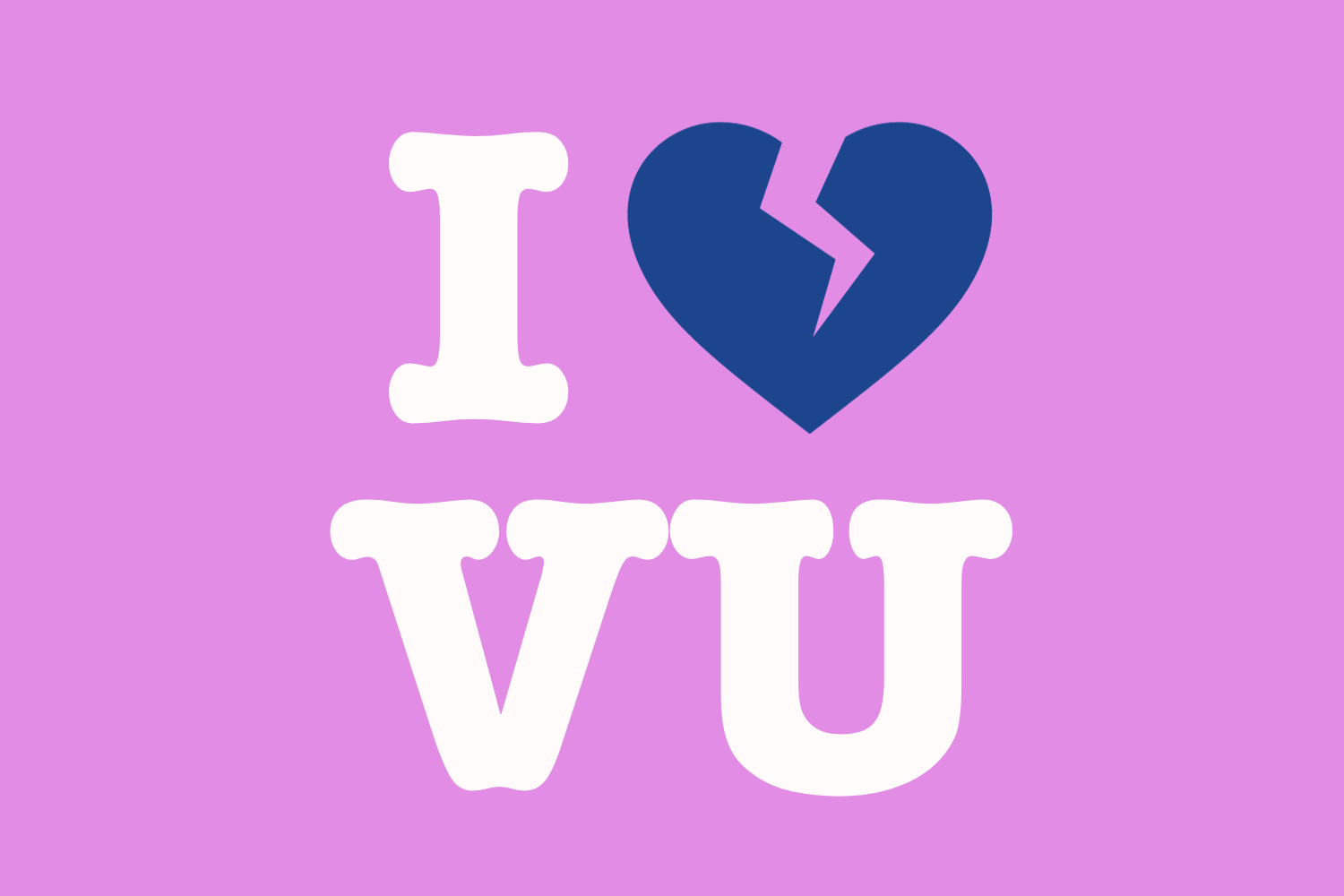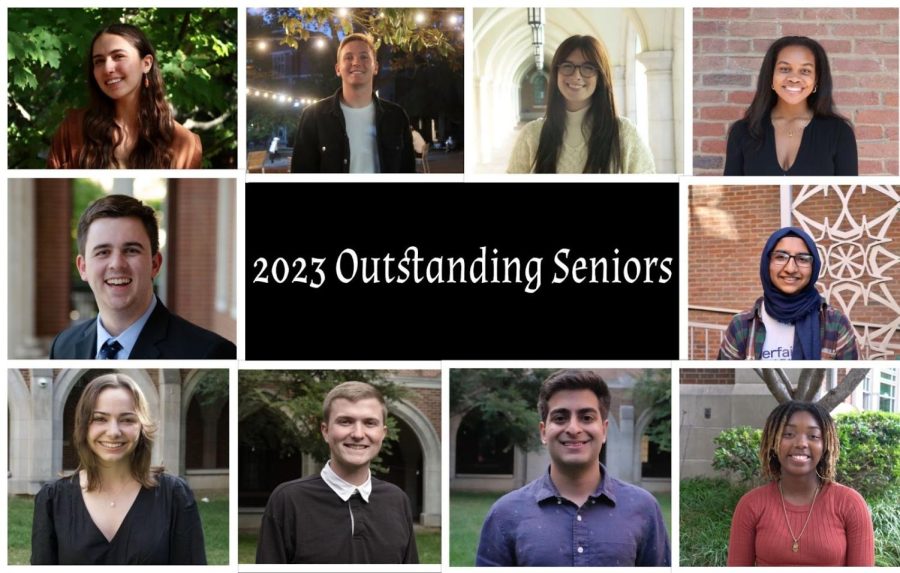VUceptors and other orientation leaders link incoming students to a network of nearly 100 successful, well-meaning peers before they even arrive on campus. As a first-time VUceptor, when I sent my students letters in the mail welcoming them to campus over the summer, I felt the familiar giddy excitement that brings VUceptors back year after year.
Lately, though, fewer and fewer VUceptors have felt the call to come back. Over the past five years, only a third of VUceptors have been returning members. As I arrived on campus for Fall Orientation Leader Training, I quickly began to grasp the reason why so many folks have left.
The VUcept program demands loads of time from students with other commitments on their plate. It designates them as representatives of the university and dictates what they should and should not say to first-year students. It deprives a “student organization” of most of the autonomy its executive committee should wield. And worst of all, it asks these things from students for nothing in return — no stipend, no housing credit and no wages of any kind.
Even after only a few months as a member of the cohort, it’s clear to me that this arrangement is not only unsustainable but incredibly unfair to students. Let’s take a look at why.
A common refrain about FOLT goes, “It’s a marathon, not a sprint.” By my judgment, that’s a euphemism for a long, arduous, exhausting training process. Student VUceptors arrive on campus weeks before our peers to sit through four 12-hour training days, beginning around 7 or 8 in the morning and lasting through 8 in the evening — and that’s assuming everything runs on time.
CommonVU orientation week offers little reprieve, demanding most of a VUceptor’s day as we guide our Visions groups through a lengthy schedule of events leading up to the first day of class. Our attendance is required at nearly all of these events for no practical reason, including the Community Commitments Ceremony, the Time Management Workshop and other sessions in which we are expected to be nothing but attentive audience members.
I want to make clear the magnitude of this commitment. During the two weeks before school, there was not a day where I was not asked to be somewhere for VUcept, even on the weekend. Frequently, FOLT and CommonVU were my entire day’s itinerary, crowding out time with friends, preparation for classes and the impending senior-year job search. Over the course of nine days, I put in around 80 hours of volunteer work for the university, the equivalent of about nine hours a day. And for much of that time, I felt my presence was neither needed nor appreciated. You can imagine how this makes VUceptors — often the most enthusiastic champions of school spirit — feel about their role on campus.
But it’s easy to dismiss the burden of FOLT and orientation as a fleeting blip in the overall experience. It’s only a couple weeks, after which VUceptors surely draw most of their satisfaction, right?
Yes and no. It’s true that almost any VUceptor will tell you that their weekly Visions sessions, an opportunity to bond with as well as support first-years, are the reason they joined the organization. During our first week, my Visions group shared pictures from each other’s camera roll and talked about what we missed from back home. Simple things like that are absolutely fun and are already helping remove the bad taste that orientation left in my mouth.
It’s important to note that these sessions are fun precisely because many VUceptors do their best to ignore Vanderbilt’s expectations that we act on behalf of the school rather than the students in our groups. Once the school year starts, VUceptors don’t gain autonomy — they simply lose oversight. We are given a rigid curriculum that is tightly linked to the summer reading, which can be difficult when students don’t connect with the book. The core ideas we are supposed to discuss are the same ones already covered at length in orientation: academic integrity, stress, personal responsibility, etc. The things we actually discuss? Highlights from each others’ weeks. Difficult classes and frustrating professors. Occasionally, Lonnie’s.
The truth is, as Visions gets easier and more fun, the gap between the university and VUceptors grows. Every week, I have to make judgment calls about which points in the curriculum are worth highlighting to my group and which ones are better left unsaid, lest they lose interest and tune out. Who can blame them? They’ve heard it all before, just like I have. They spend their days in classes and libraries and club meetings, just like I do. And they’re more excited about time to unwind in their rooms with their friends than a 50-minute seminar on stale life lessons, just like I am. My job gets more fun because my real job is to make it fun.
This situation is reflective of another issue in the program: a lack of autonomy. VUcept is listed as a student organization, meaning it is (theoretically) run by students with sponsorship and support from faculty. In practice, though, VUcept is run by the Vanderbilt administration. Students get minimal say in the FOLT schedule, in the curriculum of Visions and in most substantive aspects of the program. In fact, we don’t even elect our own officers. The “P-Team,” our president and vice president, are chosen by university staff from student applications. With this system, the “student organization” moniker feels like a stretch. During FOLT, I heard student executive board members publicly lament that the extent of their autonomy is choosing one — not both, ONE — of our “I Heart VU” t-shirt colors. VUcept is absolutely a student organization in name only.
And then, there is the crux of the matter — the pièce de resistance. What do we get for all this service and sacrifice on behalf of the university?
Nothing.
Once upon a time, student VUceptors were issued a $200 textbook stipend for their participation. Then, in 2008, for reasons that befuddle every current VUceptor, the organization voted to dissolve that stipend, lest VUceptors apply to the program “for the wrong reasons.” I’m sure their decision has ensured that any bad actors greedy for what amounts to less than $4 an hour steer clear of the organization, to be fair, but it also deters low-income students who may need the money. I can’t blame students who choose to work part-time jobs or research positions instead of joining VUcept.
The university has argued to VUcept executives that, to receive compensation, we must dissolve as a student organization — an outcome no one wants — and reclassify ourselves as employees. They suggest we would have to sacrifice our ability to self-govern despite the fact we do very little self-governing as is. And they claim they can’t currently pay members of a student organization, despite the fact that Vanderbilt’s Tour Guides received monetary stipends as incentives as recently as 2021. To me, there is every appearance that the university wants to delay action on the subject until after those of us who care have already left VUcept entirely. At the end of the day, they pick the P-Team. They’ll just get a new one next year.
What’s worse? Our faculty partners, who fill the same role as us, get paid. In fact, they currently make 10 times what 2008’s cohort voted to forego, earning a $2,500 bonus just for signing up. That bonus, which some faculty members brush off as pennies on the dollar, amounts to two months of work at 20 hours a week for Vandy’s highest-paid student employees.
There isn’t any justifiable reason why faculty VUceptors are paid when student VUceptors aren’t. Faculty attend a fraction of the training that we do — less than one day against our four. In addition, they are tasked with a fraction of the work. They don’t scramble around Commons during move-in day, coordinating 20 hectic hellos with first-years. They don’t complete one-on-one meetings with each member of their Visions group throughout their busy semesters. In fact, it’s not unheard of for faculty VUceptors to be completely absent from the planning of Visions sessions, leaving student volunteers hanging with a workload significantly heavier than intended.
The state of affairs is simply hypocritical and wrong. We can’t be paid as students, but we also can’t speak freely as students or even vote for students to represent us as students. And if we ever decide this arrangement is exploitative and problematic (which it is), Vanderbilt will simply delay, delay, delay. Three years, an eternity for a college student, is the blink of an eye for an institution that’s been around since the 19th century.
It can be tempting to dismiss all of these points as empty complaints. After all, every VUceptor signed up for this voluntarily. We knew we weren’t getting paid, and we knew how arduous the training process was. If we don’t like being a VUceptor, we can just quit. Why all the fuss?
Simply put, “If you don’t like it, then quit” is a terrible way to run any club, let alone a program for orientation leaders. It drives students away from conflict rather than bringing them in to solve it, reducing retention and disrupting the sense of community that is so vital for supporting first-year students. VUceptors volunteer because we care about the school we know and love – and its incoming class. But a program that disrespects, frustrates and ignores us can and will hinder the university’s ability to connect with students in the long term. If VUcept isn’t remodeled, it will continue to drain its volunteers of their commitment to Vandy and their compassion for others, until there are no volunteers left.
Luckily, discussions are underway to make a difference on this issue before year’s end: we’re voting on the future of VUcept at an upcoming general body meeting on October 5. The VUceptors I’ve met are a resilient, selfless bunch, and all of us want the outcome that is best for first-year students and the school as a whole. But VUcept will not thrive if we continue to be treated like employees without the compensation that status warrants. As negotiations between VUceptors and administrators begin in earnest, Vanderbilt should keep in mind the importance of treating its students, especially those most eager to give back, with respect — both for our sake and for theirs.









 VU” doesn’t cover the physical and emotional labor being asked of these 100 students, and the rigid structures and university-designed binders of approved topics for every Visions session only stifle creativity and sow disinterest among the freshmen.
VU” doesn’t cover the physical and emotional labor being asked of these 100 students, and the rigid structures and university-designed binders of approved topics for every Visions session only stifle creativity and sow disinterest among the freshmen.